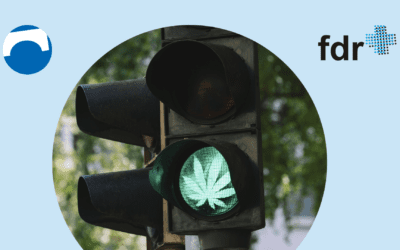“Try to show us love!“
Der Mord an George Floyd führte in den vergangenen Wochen zu weltweiten Protesten gegen Polizeigewalt und systemischen Rassismus. Bei uns sprechen Menschen aus unserem Umfeld, die selbst von Rassismus betroffen, sind über ihre Erfahrungen und Ansichten. Wir wünschen ein lehrreiches Lesen!
Sarah
Sarah, Asylwerberin, hat uns eine Sprachnachricht via Messengerdienst geschickt, mit der Bitte, ihre Erzählungen und Gedanken anonym zu transkribieren. Ihre Name wurde geändert.
“Mama, why is the woman running?” Alltagsrassismus und Solidarität
“I remember there was a day, like three years ago. I was inside a train with my children. Immediately when we enter the train there is one woman inside the train – white woman. We sit beside her and she just stands up runs away from us as if we were mad persons. Even my children was asking me ‘Mama, why the woman is running?’ I said ‘Don’t mind her. Leave her.’ But on that train there was another woman. She was looking like: ‘What is going on?’ She came to us, to my children, she carried them. She’d bring out sweets, chocolates inside a bag. She gave them many things, because she knew we feel bad. ‘Why this woman did this to these people?’ The other woman knew it’s no good. She comes to us, she talks to us, we talk together. Even when she got off, she said bye-bye to my children. My children were happy. My daughter was asking ‘See, this woman is doing good to us, why not the other?’ Forget her, don’t mind!” “They were treating us as if we are nothing” – Leben in einer Großunterkunft für Geflüchtete “Another example is the way we were living. They were treating us as if we are nothing. Not the socials. [Anm: Die Sozialarbeiter*innen]. Our socials, they really try their best. But the people who used to give us letters, that used to post the letters when maybe we needed another bed or we needed something in the room. Those people, they are treating us as if we were nothing. […] I will say it – those people that do good, I will say it. I will thank them, and really appreciate it. But people that worked in there, they believed we are goats, we are nothing! […] We had a kitchen and there would be no window. In the general kitchen, were everybody is cooking. The alarm will blow! So there was a day I asked one of the women: ‘Are we supposed to do something about a window?’ She’s like: ‘Even if they put you in a cage, you should be happy. They give you a room and they give you a kitchen, and you are still complaining!’ I was shamed that day!” “We want to work!” – Über Vorurteile statt Arbeitserlaubnis für Asylsuchende “Please if there is anything you can do to help us: Don’t treat black people bad. They are also human beings. In this country, you have to go to Deutschkurs before you can work. If you want a better future for yourself in this country, you have to go to the Deutschkurs, you have to follow their protocol, then you can have a good job. And all those things are a long process. Maybe some people are thinking: ‘We are working, they are taking tax from us and they are using it to feed you people. Nonsense, you people, don’t work!’
It’s not like we don’t want to work. We want to work! Especially me, I want to work! […] So really, we are not lazy persons. We want to work. We are not all the same. I know the people who want to contribute to society are more than the people who do not want to work. It’s also happening with white people. There are white people who don’t want to work, who want to collect government money and who don’t want to do anything. And there are those who really want to work. And that is how it is with black people also. We are not lazy.” “Try to show us love!” – Über Zusammenhalt und Hilfe füreinander
“Please, if you know a way to address people. To the whole world, to the whole Germany: They should try to show love to us. Every time we see blacks or whites, we show love to them. We laugh, we do everything. They should also be doing that to us. For example, the way you [Anm: Mitarbeiter*innen der Migrationsberatung] are doing to me and my children, it’s like I am living here with my parents. Because if I need something, something’s bothering me, you definitely enlighten me, you tell me this is what we should do. That is how it’s supposed to be. If all people could be doing like that, it would be good. We would be happy!
So thank you, I really appreciate the opportunity to say our mind out!” Zu systematischer Polizeigewalt und ihre Folgen “And you know this country. [Anm: Die USA]. If they kill, they will be back. They will say: ‘Ah yes, go to the prison’ and then after, the person will come out. But it’s the person that died that died.” Sarah’s Gedanken zu Rassismus
“It’s blood that runs in our veins. White people – blood runs in their veins. White people are white outside, it does not mean their heart is white. And we black people, we are black in our complexion, it does not mean our heart is black.”
– Sarah
Brishna
Es ist ein wichtiges Thema, wir sind alle Menschen, egal ob schwarz oder weiß, wir haben alle die gleichen Rechte auf der Welt, niemand darf jemandem das Leben nehmen.
– Brishna
Anthonia
We have someone in our place. She talks to us as if we are slaves. She is racist.
– Anthonia
Mona
Ich finde sehr traurig, was in den USA passiert ist. Und dennoch finde ich es gut, wie viele Menschen nun darauf aufmerksam geworden sind, wie sehr so viele noch heute von Rassismus betroffen sind und dass wir weißen Menschen nun aktiv antirassistisch sein müssen. Das heißt keine abwertenden Blicke, Äußerungen oder Diskriminierungen zu dulden. Sich immer wieder selbst hinterfragen. Sich immer weiter bilden. Menschen zuhören, die betroffen sind. Sie fragen, was sie sich wünschen würden oder wie man sie unterstützen kann und was sie brauchen, wenn sie die aktuellen Ereignisse erschüttert haben.
Ich war selbst auf der Münchener Demo zu „Black Lives Matter“ am Samstag und es hat mich zutiefst berührt, wie viele Menschen wir waren und hat mir die Hoffnung auf Veränderungen gegeben. Ich bin selbst Halb-Iranerin, habe aber zum Glück immer meinen kulturellen Hintergrund als eine Bereicherung gesehen. Ich hoffe eines Tages kann das jeder so sehen. Egal ob es ihn oder sie selbst betrifft oder die Menschen in ihrem Umfeld.
– Mona
Kate
Name auf Wunsch der Einsenderin geändert.
Kate’s Einsendung auf Englisch
I have been in Deutschland since 2008. Being a black woman, I have experienced a lot of insults at working place and outside. But I am a strong woman and I like the security we have in Munich.
–KATE
I have received insults from a driver calling me bloody cow in front of my daughter, but I never did anything wrong.
Secondly I had problems at work because a superior doesn’t like black people. At the end, my colleagues fought for me. Always tells my children to be strong. For example I have been looking for house still 6years now but no luck. I have good job at hand, I can pay my house rent without Government help me. Immediately you call them or see your your name – no chance to get that house! But the police in Deutschland is good. Thanks.
Kates Einsendung auf Deutsch: Ich bin In Deutschland seit 2008. Ich bin Afrikanisch. Ich habe Erfahrung mit Rassismus in der Arbeit und Draußen. Ich würde von ein Busfahrer beleidigt als blöde Kuh, wo meine Tochter da bei war. Und ich hatte in der Arbeit der Arbeit Probleme bekommen. Eine Kollegin mag keine braunen Leute. Aber Dank der Hilfe von anderen Kollegen, ist das Problem weggenommen. Ich sage immer meine Kinder sie sollen stark sein. Und die Polizei ist gut zu uns. Danke.
Eure Stimmen
Gerne erweitern wir diesen Beitrag mit Stimmen von mehr Betroffenen. Wenn ihr diese Bühne nutzen wollt, schickt uns gerne eure Texte, Videobeiträge oder Sprachnachrichten an redaktion@condrobs.de




